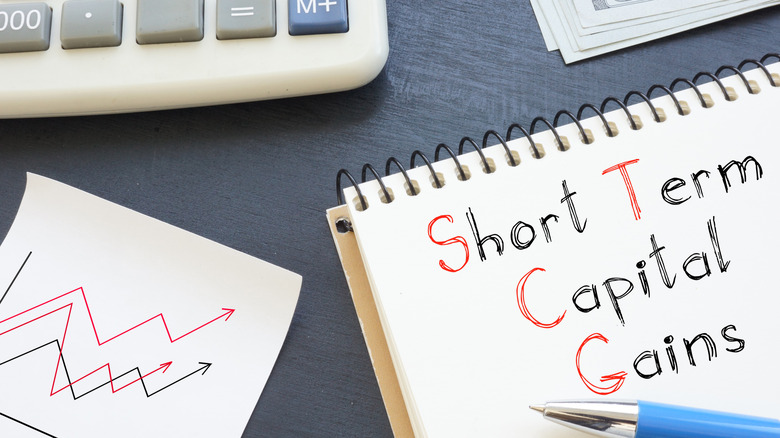Your IRS Audit Risk Goes Up If You Have This Trade Habit
As spring rolls back around each year, hundreds of millions of Americans begin to gather up their tax documents and explore ways to maximize the refund due back to them. Part of this process is doing everything possible to avoid any conversations with the IRS. However, a select few will end up getting letters in the mail asking for additional information rather than an accepted return and check. This can be a nerve wracking experience, and those who haven't had interactions with the agency in the past will almost certainly feel their heart pump a bit harder. However, these kinds of information requests are actually fairly benign. It's the full-on audit you'll want to avoid at all costs.
Unfortunately for some, this may be unavoidable, especially depending on certain financial habits that may be part of their lives. Most Americans save at least something for their retirement (Gallup notes that it's just under 60% of people). This is a non-negotiable feature in the budget of a worker who wants to retire someday, and a typical retirement portfolio won't generally warrant any extra scrutiny. However, those who maintain a standard brokerage account and save some of their shorter term capital in stock investments can bring extra eyes to their tax filing under the right circumstances. Specifically, those who trade a lot may be setting themselves up for additional scrutiny. While there is nothing wrong with trading as often as you like — perhaps even placing trades on a daily basis — this behavior must fit into a larger strategy in order to make sense.
Frequent or even pattern day traders run the risk of extra scrutiny
The more trades you make the more complicated your tax calculations become. There's no getting around this fact, but with good accounting practices and a brokerage firm that delivers tax documentation with more than enough information contained within the report you can make the task simpler. With each new trade, you'll have to carefully calculate the cost basis of the investment, and account for the capital gain (or loss). Adding this up throughout the year can be simple, or immensely complex if you make numerous trades on a weekly or monthly basis. The more activity there is within your portfolio, the more work you will ultimately have to do when filing your taxes.
This translates into more room for errors. For the most part, stock market trades don't represent an area in which taxpayers might consider cheating since these transactions are well documented. More importantly, the IRS can easily get their hands on a log of your activity for comparison. But mistakes are fairly easy to make, especially when some of your trades fall under the long term capital gains rate and others are assessed at the short term rate. Those trading with particular fury may also have to send in a 1040-X to amend their initial submission if the entirety of their activity wasn't contained within the first account statements generated. There is often so much happening within a highly active portfolio that owners shouldn't be surprised if the IRS wants to take a second glance.
High trade frequency can also impact the cost of your tax burden
As mentioned, some trades that take place within a highly active portfolio will likely be assessed at the short term capital gains rate. This happens when you sell a stock that you've held for less than a year. Long term rates start a zero and span across three brackets (0%, 15%, and 20%). Most investors won't reach into the 20% range which, in 2025, would be assessed on single earners with an income above $533,400. On the other hand, short term gains are taxed as regular income and stretch across the ordinary income brackets, pegged at 10%, 12%, 22%, 24%, 32%, 35%, and 37%. This means that even if your income is at the low end of the range, you'll still be paying 10% on your stock earnings.
The difference can be drastic for those who trade at rapid speeds. Depending on your portfolio volume, day trades can yield small or immensely large returns on a frequent basis. The initial victory of a big swing like this can be exhilarating, but there's a lot more to keep straight in your financial plans than just what to do with the return. For one thing, you won't pay taxes on stock trading income right away, so holding back a portion of your capital gains is essential to prevent needing to sell assets later to cover your tax obligations. It's easy to overlook this less-glossy reality of high frequency trading, leading to the potential for some uneasy decisions later on.


